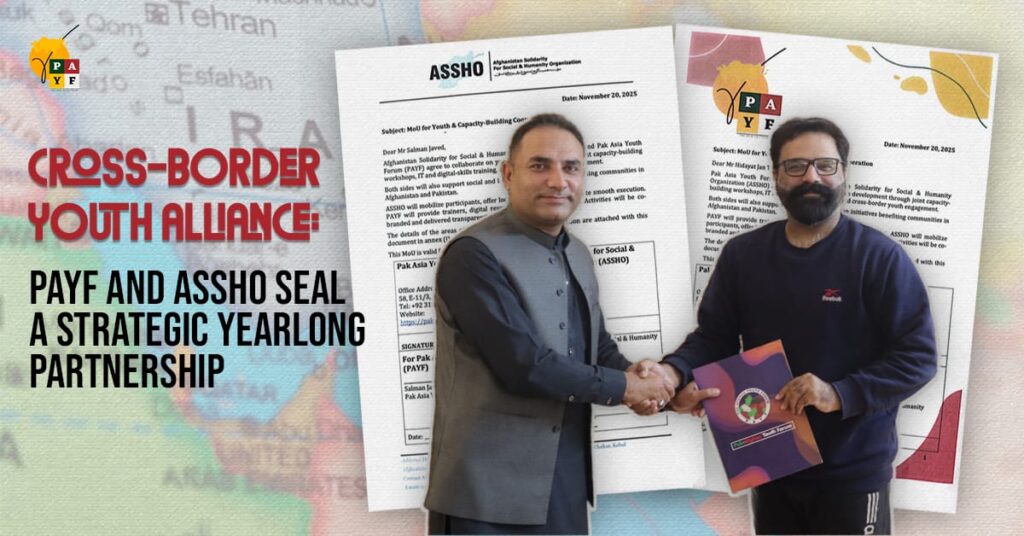November 20, 2025 – two organizations, one rooted in Pakistan, the other in Afghanistan weaved their destinies together with ink and paper. Not just a routine signing; the birth of a cross-border dream for a generation longing for opportunity.
On one side sat the representatives of the Pak Asia Youth Forum (PAYF), an organization dedicated to empowering the youth of Asia. On the other, the delegation from the Afghanistan Solidarity for Social & Humanity Organization (ASSHO), champions for the vulnerable communities in Kabul and beyond. Their common ground? The fervent belief that the future of their shared region lay in the hands, and the honed skills, of their young people.
Imagine the conversation leading up to this moment. Two sets of leaders, meticulously planning a collaboration focused on Youth and Capacity-Building Cooperation. The subject of the signed Memorandum of Understanding (MoU) was a roadmap built on joint capacity-building workshops, IT and digital-skills training, and crucial cross-border youth engagement.
“We will provide the trainers, the digital resources, the technical expertise,” promised the voice from PAYF.
“And we, ASSHO, will mobilize the participants, offer local coordination, and ensure the execution is smooth and reaches those who need it most,” the ASSHO team affirmed.
It was a perfect synergy: PAYF bringing the technical how, and ASSHO bringing the community who. Beyond the formal training, the MoU wove in a deeper thread: both sides pledged to support social and humanitarian initiatives benefitting communities in both Afghanistan and Pakistan. It wasn’t just about coding; it was about connection, empathy, and collective growth.
As the documents lay ready, two names stood out: Salman Javed, Director General of PAYF, and Hidayat Jan Tanai, representing ASSHO. With a practiced flourish, each leader put pen to paper, the act symbolizing the one-year vow of collaboration, a period extendable by mutual consent.
The crisp thump of the signed documents landing on the table was the sound of a new chapter beginning. It was the sound of a bridge being built across a border, a bridge made not of concrete, but of digital skills and shared humanity. For the young men and women in Islamabad, Kabul, and the forgotten villages in between, this MoU was more than a partnership; it was a promise that they would not be left behind. It was a clear, transparent, and co-branded pledge that the world was about to get a little smaller, and their opportunities a lot bigger.
This agreement, signed on November 20, 2025, was a silent, powerful testament to the fact that even in regions facing complex challenges, hope can be collaboratively trained, digitally skilled, and peacefully deployed.


